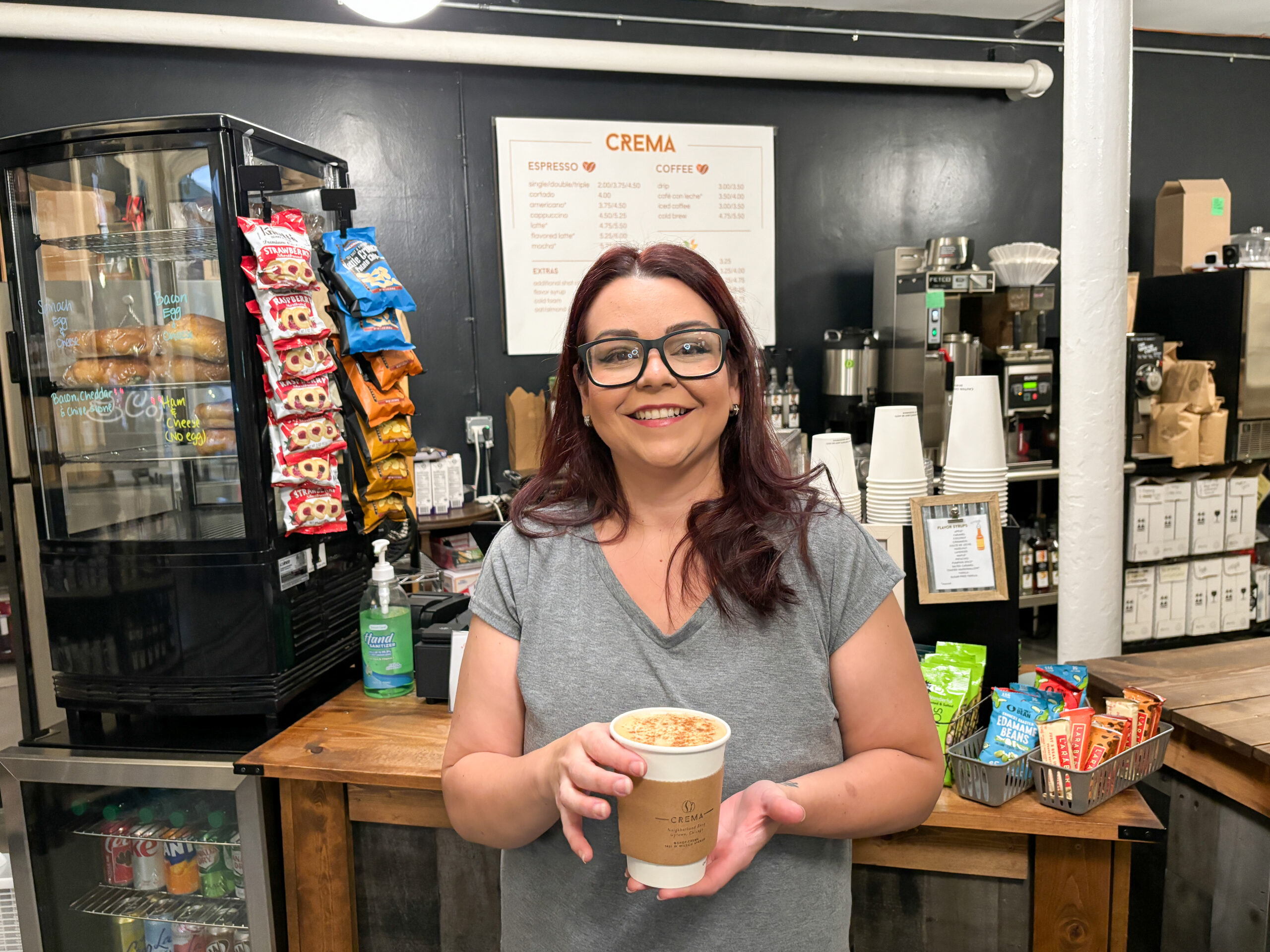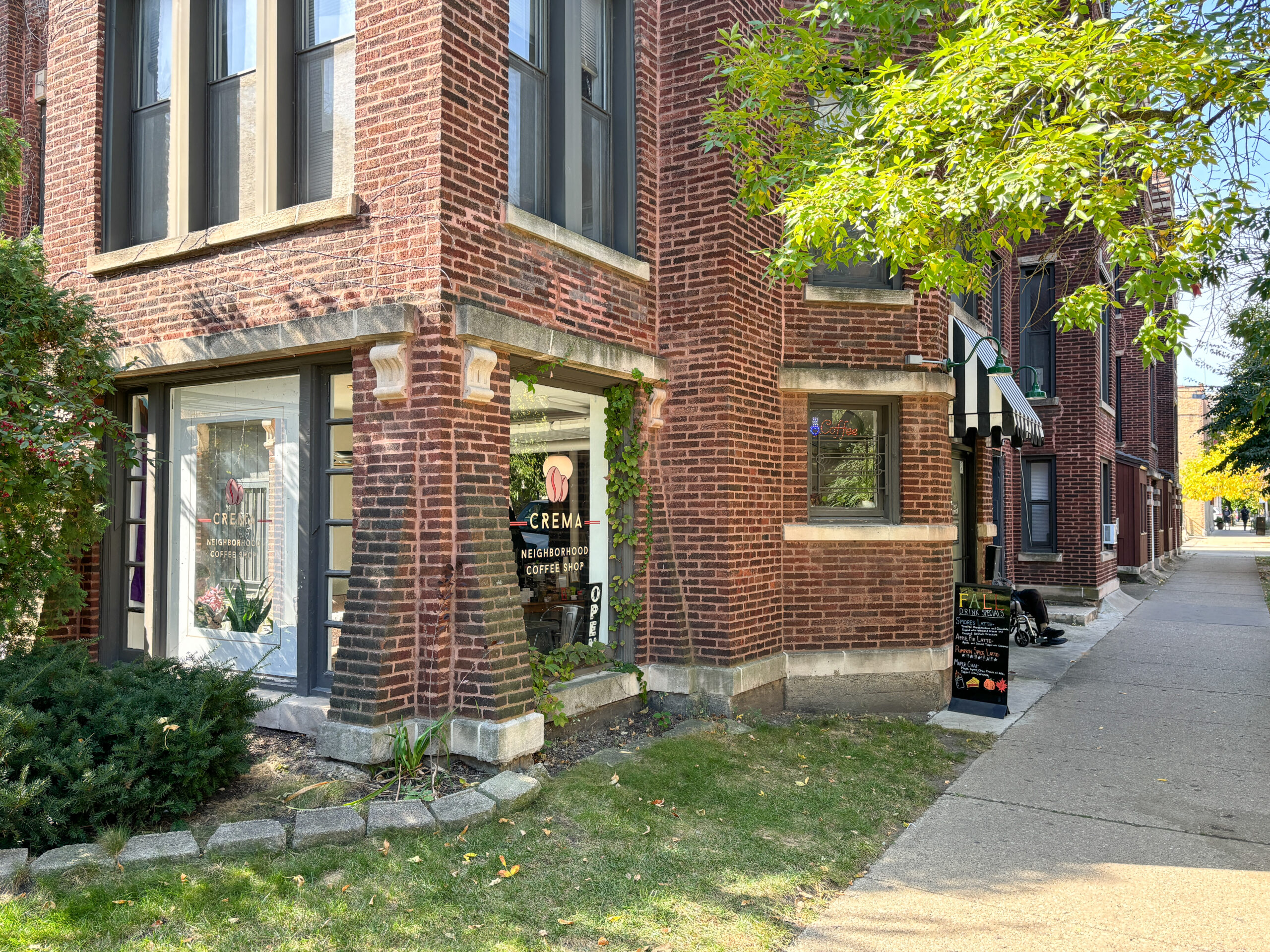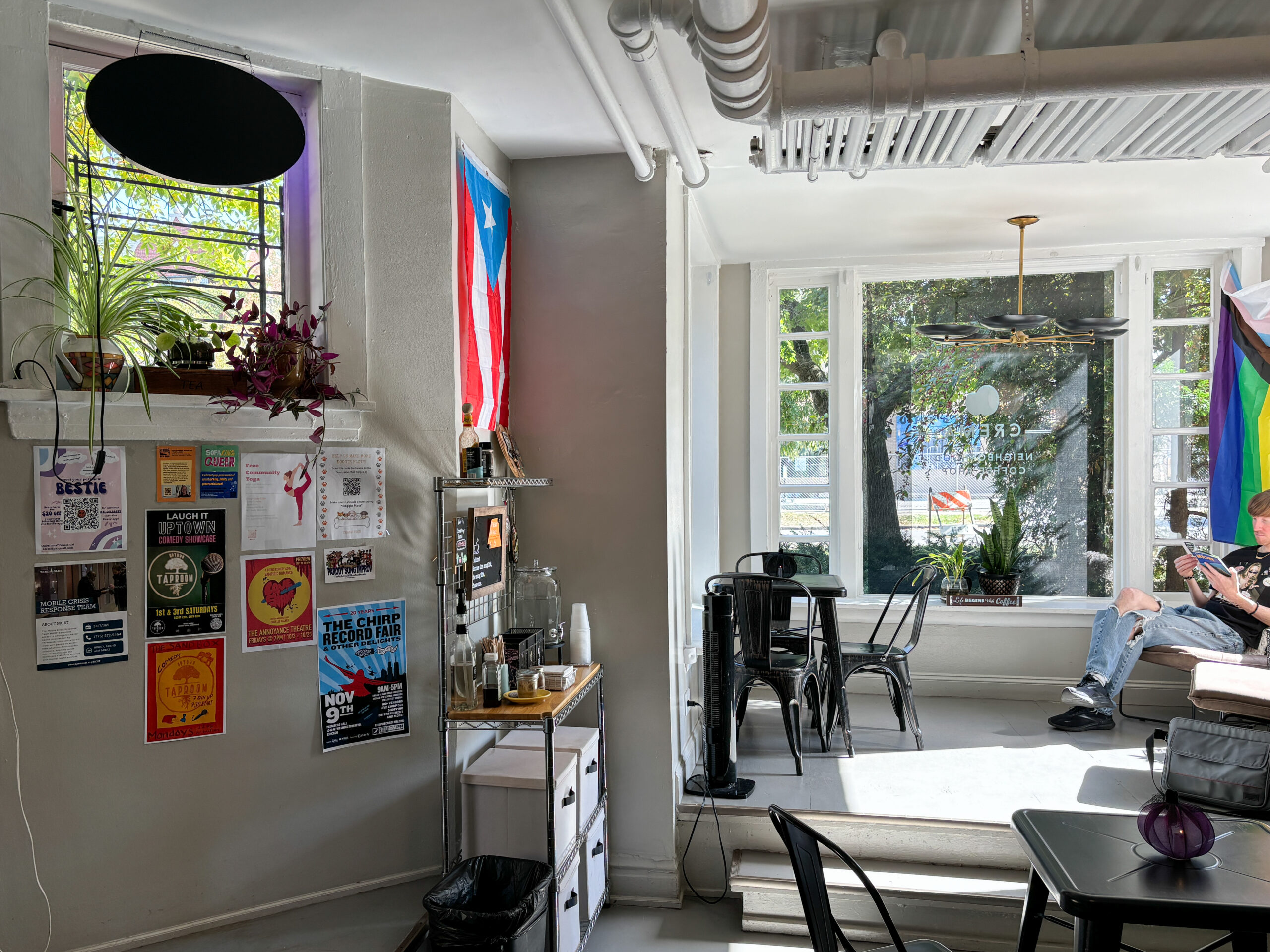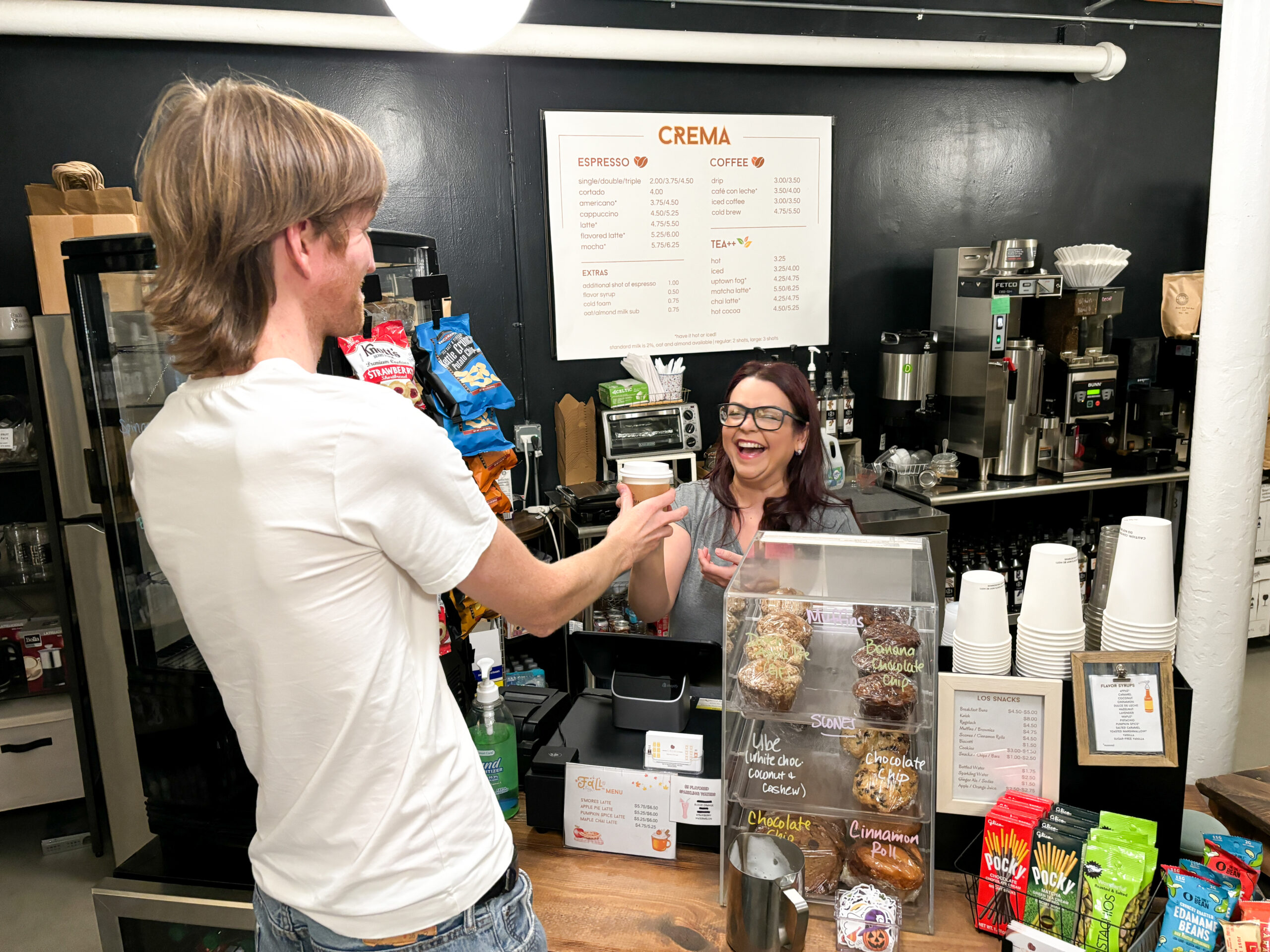Nestled below an apartment complex in Sheridan Park, Crema is a tiny-but-mighty Latina-owned coffeeshop known for cortaditos, coquito lattes, and cozy corner views. In just two years, it has become a neighborhood staple, exemplifying how “third places”—common spaces besides work and home—spark community, creativity, and friendship in our increasingly isolated society.

Owner Frances “Fran” Matos has always associated coffee with relationships. “Growing up in Puerto Rico, there was always coffee brewing,” she shares. “Neighbors, family, friends would come in, and we would use that time to check in, to have very quick chats but also very deep conversations.”
Crema embraces that model of togetherness. “The whole point is for the place to feel like a neighbor’s house,” Matos says—a vibe many coffeeshops are abandoning for drive-thrus and limited seating. Amid what the U.S. Surgeon General calls a “loneliness epidemic,” togetherness is increasingly rare—and vital.
“Back home we have this word, tertulia: being in a common space, having a conversation,” Matos says. With just 700 square feet and plenty of chairs, Crema is a natural incubator for tertulias. “It’s a great way to socialize without depleting your social battery.”
Matos’s roots have also influenced the coffee itself. After Hurricane Maria devastated Puerto Rico’s coffee harvests, Fran partnered with Maple Leaf Coffee Roasters of Roselle, Illinois to create custom blends evoking the taste of Puerto Rican beans. They are slightly sweetened by the island’s guava and almond trees. She started selling at farmers’ markets before renovating and opening a storefront in 2022, just blocks from her apartment.

Everything about Crema—from location to pricing to flavors—“revolves so much around the neighborhood,” she says. “I don’t think I can replicate this somewhere else.”
Sheridan Park is located within Uptown, one of Chicago’s most ethnically and economically diverse neighborhoods. Its relative affordability draws young people, freelancers, and immigrants from across the world. At Crema, Uptowners can release the Chicago hustle and bond as neighbors.
“I’ve seen people meet here and then come back and hang out,” says Matos. “Those conversations and relationships wouldn’t exist if the space didn’t exist.”

Third places—a term coined by Minnesota-born sociologist Ray Oldenburg—are disappearing due to social media, high costs, and decreased foot traffic. But Crema proves they are crucial not just in social and civic life, but in a community’s creative life too. Customers regularly come to crochet, write, read, even teach. One developed an entire computer game over iced lattes; another plugged in a lightbox to sketch with ink. Several baristas are artists, and two walls are reserved for posters advertising free concerts, open mics, queer improv.
“I wasn’t aware of the number of creative people that live here,” Matos admits. “You don’t get to know people at the same level when you’re just across the street. The community wouldn’t know about these things unless places like [Crema] share them.”
For Matos, this is the role Crema exists to fill, and its importance cannot be overstated. “I believe in the power of community,” she says. “As a society, that’s the only way we’re going to survive.”
